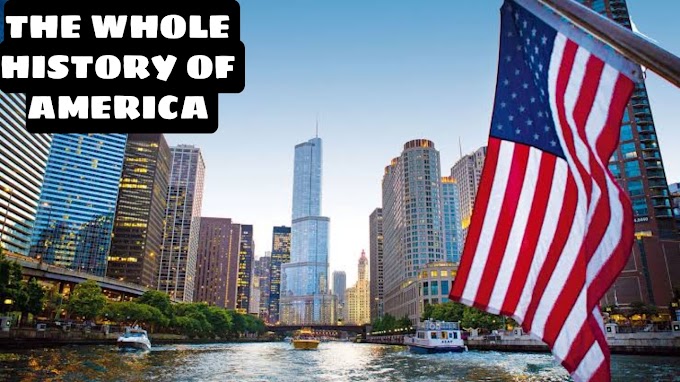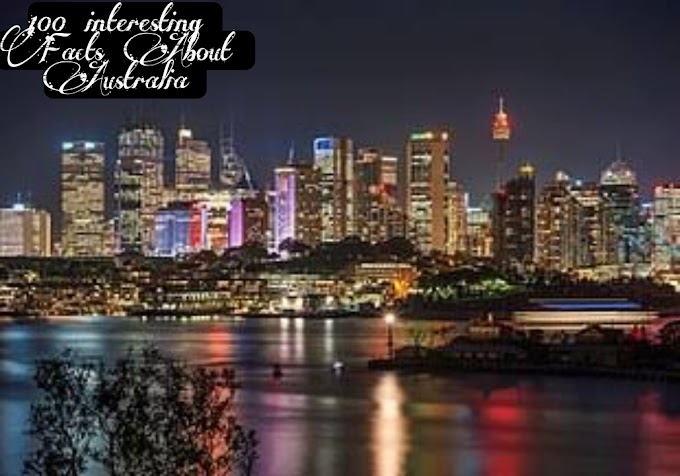THE WHOLE HISTORY OF CAMEROON
Hello Friends:
Welcome to Countries Facts so Today in this Article I will show you the whole history of cameroon the republic of cameroon is one of the powerful independent countries in central and west africa in a region often regarded as the hinge of africa it shared landmarks with nigeria to the northwest chat to the northeast the central african republic to the east the republic of the congo to the southeast gabon and equatorial guinea to the south and the atlantic ocean to the southwest with a population of not less than 26 million people speaking over 250 languages cameroon is regarded as one of the top most culturally inclined countries in africa the country also boasts of a land area of 183 569 square miles that is about 475 442 square kilometers which is slightly smaller than spain and slightly bigger than the u.s state of california dense jungle a vast river network and tropical rainforest form a major part of cameroon's southern and coastal areas right from independence from france in 1960 cameroon has enjoyed relative stability giving for the improvement of roads and railways as well as lucrative agricultural and petroleum outlets their biggest city of dwala is the economic center of commercial and industrial activities while yaounde the second largest city is the capital of cameroon before independence in 1960 the country was under the colonial control of about three european powers for more than 76 years cameroon's history has been surrounded by periods of apparent peace and stability followed by eras of violence history shows that the region of africa that now forms cameroon may have been considered to be the first homeland of the bantu peoples around 1500 bce distance descendants of the ancient bantu still reside in the dense forest of cameroon southern and eastern provinces where they proudly walk in line with their ancestral culture the first europeans landed in 1472 with portuguese explorers and traders residing along the banks of the woolry river in what is now known as the southwestern part of cameroon on the gulf of guinea in spite of the presence of the portuguese in the 16th century the emergence of malaria prevented large-scale european colonization of cameroon until the late 1870s the pre-colonial european presence in the country was restricted to trade and accusation of slaves immediately after the slave trade was stopped in the late 19th century european christian missionaries surfaced in the country where they continue to play a major role in cameroonian day-to-day activities meanwhile in 1808 the fulani a nomadic islamic people from the sahel region of western and north-central africa moved to what is now called northern cameroon displacing the area's largely non-muslim population today the fulani continue to farm and raise cattle near the cameroonian towns of diamaree benue and adamawa however in 1884 germany bombarded the area now known as cameroon during the so-called scramble for africa the era of imperialism that saw european countries overtaking most parts of the continent while the german government substantially worked on the improvement of cameroon's infrastructure especially the railroads their practice of forcing the inhabitants to work on the project against their will happened to be highly unpopular in respect to the defeat of germany in world war one the league of nations made it compulsory that the territory be divided into the french cameroons and british cameroons political parties first appeared during cameroon's colonial period the biggest party the union of the peoples of cameroon upc asked that the french and british cameroons be joined to form a single independent country when france suspended the upc in 1955 a rebellion claiming thousands of lives led to cameroon attaining full independence as the republic of cameroon on the 1st of january 1960 when elections were conducted in may 1960 ahmadu ahijo was voted the first president of the republic of cameroon promising to create a capitalist economy and maintain close ties with friends when ahijo resigned in 1982 his hand-picked successor paul bia replaced him in october 1992. biya was re-elected and in 1995 cameroon joined the commonwealth of nations in 2015 cameroon joined with neighboring countries to fight the boko haram jihadist group which had been responsible for bombings and kidnappings despite recording some success cameroon faced allegations that its military had committed widespread human rights violations in the war against the group as well as the civilians meanwhile a 2008 constitutional review abolished presidential term limits giving room for porbia to be re-elected in 2011 and most recently in 2018 bias cameroon people's democratic movement party also holds a solid ground in the national assembly just like her neighbor nigeria cameroon is home to nothing less than 300 distinct ethnic groups each of the country's 10 regions is occupied by specific ethnic or religious groups cameroon is regarded as a democratic presidential republic a popularly elected president of cameroon serves as head of state and commander in chief of the military the president is directly voted by the people to an unlimited number of seven year terms giving their president polbia the power to have spent about four decades as president since gaining independence in 1960 cameroon has become one of the wealthiest countries in africa it is the largest economy in the central african economic and monetary community cermak with a gdp of 38.68 billion u.s dollars as of 2018. cameroon is blessed with rich natural resources some of which are oil and gas minerals high-value species of timber and agricultural products such as coffee cotton cocoa maize and cassava in case you take a trip to the country econ income falls bimbia slave port mount falco rum rock barfoot palace corrupt national park and many others are some of the beautiful places to visit the central african cfa franc is the currency of cameroon and having been colonized by france and britain french and english are official languages although the internal crisis has greatly affected the productivity of this african nation what have we missed out of this history let's know in the comment section will it be ridiculous to subscribe to our website if no please like this Article share and subscribe to our website bye.

















